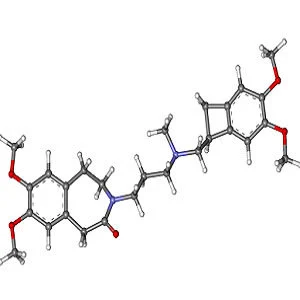A randomised trial has just been completed in which patients with heart failure with preserved ejection fraction (HFpEF) were treated with Ivabradine. Currently, there is no known effective treatment for reducing morbidity and mortaility in patients suffering from HFpEF.
See Also: Azithromycin Not Linked to Increased Arrhythmia Risk
HFpEF patients tend to suffer from elevated heart rate which is a predictive factor of poor outcomes and increased mortality. Trial findings did not find any improvement in outcomes with ivabradine despite the fact that previous research had suggested that the drug could possibly benefit patients with heart failure with reduced ejection fraction.
"Potential explanations for failure are lack of sufficient power since recruitment was interrupted due to difficulties in finding patients, and the idea that heart rate lowering is beneficial in this condition could be wrong if patients have extensive fibrosis and thus no reserve in stroke volume. In that case, changes in cardiac output are totally dependent of heart rate, and reducing heart rate in this context could be detrimental," said Prof. Michel Komajda, lead author of the European Journal of Heart Failure study.
Source: Wiley
Image Credit: MarinaVladivostok
References:
Komjada, Michel et al. (2017) Effect of ivabradine in patients with heart failure with preserved ejection fraction: the EDIFY randomized placebo-controlled trial. European Journal of Heart Failure; DOI: 10.1002/ejhf.876
Latest Articles
HFPEF, heart failure with preserved ejection fraction, patient outcomes, Ivabradine
A randomised trial has just been completed in which patients with heart failure with preserved ejection fraction (HFpEF) were treated with Ivabradine.










